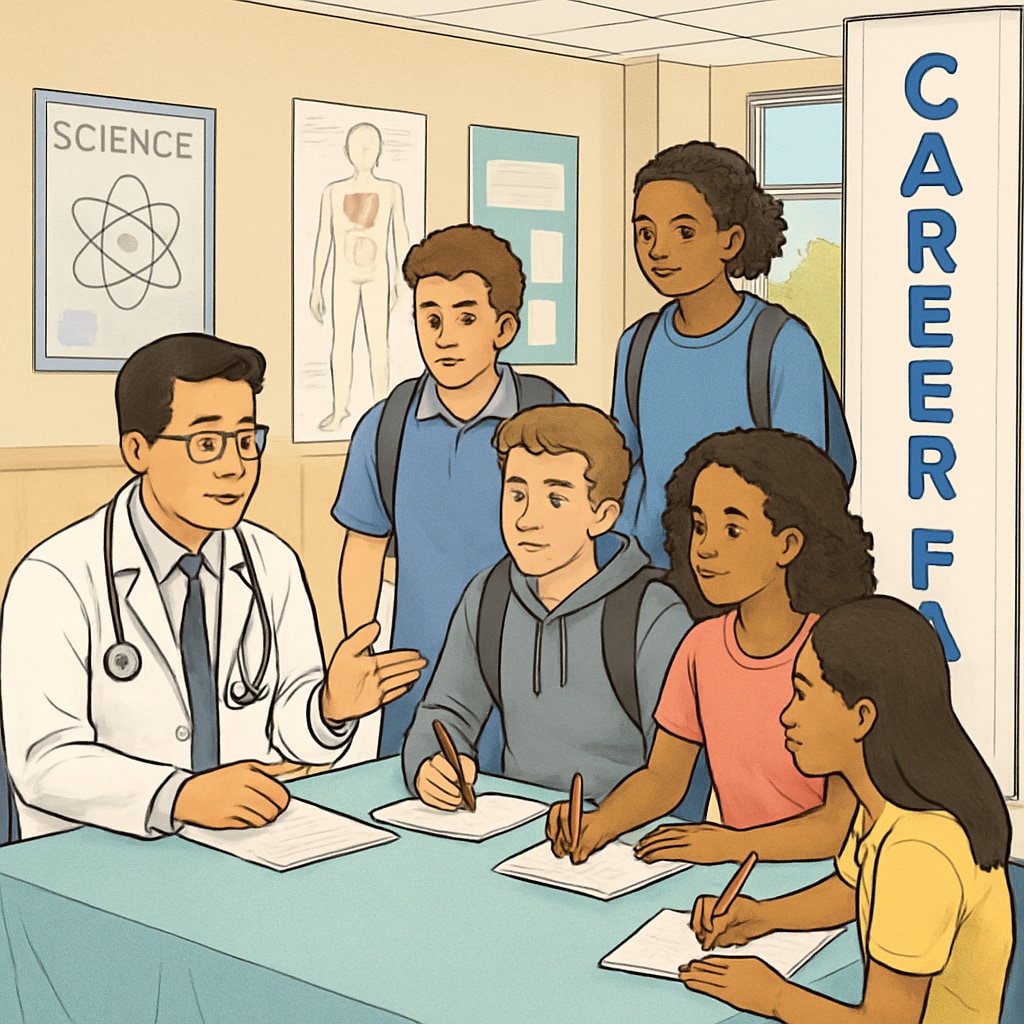Planning a career in medicine requires careful guidance and preparation, especially during formative years in K12 education. By leveraging structured doctor interviews, school programs, and targeted career advice, students can gain a clear understanding of the medical profession and the skills required to succeed. This article outlines actionable strategies to help aspiring medical professionals connect with experienced doctors and prepare for their future.
Building Connections Through Doctor Interviews
One of the most effective ways for students to learn about the medical field is through doctor interviews. These conversations provide firsthand insights into the challenges and rewards of a career in medicine. For example, students can ask doctors about their educational journey, day-to-day responsibilities, and the skills they find most valuable. Schools can facilitate these interviews by inviting medical professionals to career fairs or organizing virtual Q&A sessions.
- Encourage students to prepare specific questions about the field.
- Focus on exploring various medical specialties during interviews.
- Highlight the importance of work-life balance and mental resilience.
These interactions not only inspire students but also help them make informed decisions about pursuing a career in healthcare.

Leveraging School Programs for Early Exposure
Many schools offer programs that expose students to the medical field, such as science clubs, biology labs, and health science courses. These initiatives allow students to explore their interests in a hands-on environment while developing foundational skills. For instance, a student interested in surgery might benefit from dissection labs, while another interested in public health could excel in epidemiology-focused projects.
In addition to academic programs, extracurricular activities such as volunteering at local clinics or hospitals can provide valuable experience. Such opportunities teach students empathy, communication skills, and adaptability—qualities essential to medical professionals.
- Integrate STEM (Science, Technology, Engineering, and Math) modules with medical themes.
- Collaborate with local healthcare providers for student internships.
- Encourage participation in science fairs with medical-focused projects.

Practical Career Advice for Aspiring Doctors
Beyond interviews and school programs, students need actionable career advice to navigate the complex path to becoming a doctor. Early preparation for rigorous academics, time management, and standardized testing is essential. Schools can provide guidance by hosting workshops on medical school prerequisites, test preparation strategies, and career planning.
For example, students can learn about key exams like the MCAT (Medical College Admission Test) and explore undergraduate majors that align with medical school requirements. Additionally, connecting with mentors in the medical field can provide invaluable support throughout their journey.
- Focus on developing strong study habits early in high school.
- Research scholarships and funding options for medical training.
- Provide resources for stress management and self-care practices.
By equipping students with practical advice, schools can empower them to pursue their medical aspirations confidently.
In conclusion, combining structured doctor interviews, engaging school programs, and practical career advice creates a solid foundation for students interested in medicine. These strategies not only bridge the gap between education and professional healthcare but also nurture the essential qualities needed to become successful doctors. As a result, students can embark on their medical journey with clarity and purpose.
Readability guidance: The article uses short paragraphs and lists to summarize key points. It ensures active voice is prioritized, with smooth transitions like “for example” and “in addition” throughout the text. Images are strategically placed to complement the content.


